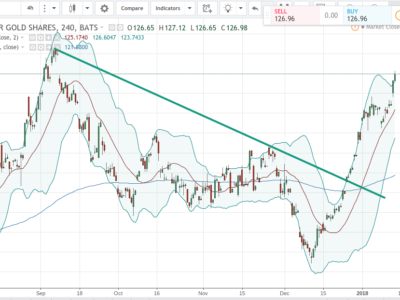Stockbroker vs Investment Advisor: What Investors Should Know
This is the age of information… lots of information! The internet is like the Wild West of information, which can make finding unbiased information difficult for the average person.
A financial advisor is a person whose job is to be an expert so that they can give suggestions to their clients about how to handle their money, grow their money, save their money, etc. A financial advisor is someone who can be your go to source for financial answers. They can be either a Registered Investment Advisor (RIA) or a Registered Representative (also called a stockbroker, FA, or registered rep).
I’m not exactly sure why nobody’s decided to compare what the different financial professionals do for people, but I think I know why….
1) Finance can be really dry…. I mean REALLY dry! Reading about finance is not fun unless it’s your own finances and you’re reading about how much they’ve grown… Even then they have to have grown a lot in a short time to really be of much interest, am I right?
2) Financial professionals themselves aren’t sure what the other ones are doing lots of times. There are multiple different regulatory and governing bodies that have different rules that apply to different professionals, even when they do the same thing. It’s the nature of the business right now in the post 2008 era, and it’s rapidly evolving. But as it changes, the result is that there are all different rules for all different people enforced by all different governing bodies. It’s confusing and no pro wants to risk their reputation by stepping out of line anywhere.
Also, there are a lot of biases in the field (kind of like how doctors seem to all hate chiropractors for some reason). When pro’s start their career on one side of the industry, they rarely switch to the other because they don’t want to join the “Other” team. That makes it difficult to line up the different titles and professionals in a way that makes understanding what people do easy.
I’ve decided to line them up for you because I am different! Like a square peg in a consistently round hole, I have left the side of the business I started in and joined the other side.
The middle is lonely. There are tumbleweeds that keep me company here. But because this is where I think financial professionals should be, I will stay here and tell you about it!
Stockbroker
Stock brokers got their name because they sell stocks, bonds, and other investments to clients. Stockbrokers represent a larger firm. The relationship an investor has with their stockbroker is the most valuable part of any arrangement because there must be a level of trust and understanding between the two parties for it to work well.
The wisdom, common sense, and know-how of a broker that has been in the business for 30 years can’t be compared to any amount of training or designations. These are individuals who started in the 70’s when there was no caller ID or internet. They would open the phone book and start calling people to tell them about different stock or bonds that were being offered on the market that day. People would often invest this way because they didn’t have the internet to go to for instant quotes and information. Interest rates were also quite high compared to where they are today, so bond offerings were much more attractive to investors. I know this because my father is a stockbroker who started this way.
Today, life is much different for those who’d like to become a stockbroker. People have caller ID’s, and any phone number they don’t recognize they won’t answer. Also, they have the internet, so they really don’t need someone to call them on the phone and tell them about today’s investments. The 30 year veterans still help clients to this day that they called for the first time out of a phone book in the ’70s!
But for a new stockbroker who wants to get clients, figuring out how to bring value to a relationship can be tough, especially when those who want to be in the stock market usually do it themselves or have a stockbroker they work with already. Also, fraudulent brokers like Madoff and movies like “The Wolf of Wall street” make hating stockbrokers easy.
It can be done though. If you really know your stuff when it comes to investments (and I don’t mean you like to pick stocks in your spare time based on something you read or a commentator you like to follow, I mean you REALLY get how everything is working behind the scenes on trading floors and have proven it with your investing strategy) people will seek your advice, and you can become successful. It also doesn’t hurt if you have a wealthy family who will throw you a bone during the first few years when the firm is laying on pressure to bring in new accounts.
The large firm acts as the investment advisor and the stockbroker acts as their associate. Brokers have a background in sales, market analysis, and can be insurance agents in addition. Stockbrokers must pass a series 6 or 7 Securities License test which is known to be difficult.
When I became a stockbroker, my manager took me to an empty office, plopped two huge text books down on my desk, and told me I had 6 weeks to pass the series 7 exam. If I didn’t pass on my first try, I didn’t have a job. I tell you what, that lit a fire under my you know what! I passed first try, but it was tense!
After the series 7, brokers must also earn a series 65, 63, or combination of the two known as the series 66 Combined Uniform State License. These tests are heavily focused on insurance and securities law. You need to have passed a series 7 to hold a 66. You also need to be employed by a broker/dealer to hold a series 7 license. Often a firm won’t hire you if you don’t already have one, which makes getting it in the first place tricky since you can’t do it on your own. If you do not have a series 7 license though, you can still take the series 63 or 65 tests which will make you as a Registered Investment Advisor instead of a stockbroker.
Registered Investment Advisor
A registered investment advisor is independent. They aren’t simply representatives of a large firm, they themselves ARE the firm! Registered Investment Advisors take a FIDUCIARY OATH to serve our clients. This is very important. Our recommendations to our clients are held to a fiduciary standard which is much stricter than the “client’s best interest” standard a representative of a large firm would be held to.
President Obama seems to be trying to change the rules so that large firms are also held to the fiduciary standard an independent firm is held to, but until that happens, big corporations are only expected to do what’s best for themselves by law. The idea is that they client’s best interest will be served if the firm is doing what they need to do to be healthy and happy…. A fiduciary is different. By law we can not put our own compensation or anything else before the well being of our clients and their investments. That’s important… By LAW the well being of our clients come before ALL ELSE! I think this is hugely important, but since I’ve probably made the point, I’ll move on…
If you are independent and had earned a series 7 license while representing a broker-dealer, it will lapse after two years. I believe that fear of letting the series 7 license lapse keeps stockbrokers at the big firms. Nobody really wants to take that test again, and the fail rate is high, so firms don’t really want to take a chance on hiring someone who hasn’t earned one yet. Letting your series 7 lapse is no small decision.
A financial planner or investment advisor that is independent of the large firms has more freedom to set their prices and work with the clients they chose. That’s a major reason that I became independent and opened my own firm. I’ll get to that next.
I’ve thrown caution to the wind and decided to explore the great big wilds of independence! I still have my series 7, but it’s inactive since resigning from my sales position as a stockbroker at a wire house broker/dealer.
So what is my new position as Founder and CEO of my very own financial firm called? You may have also heard of a profession called Investment Advisor.
I’m an investment advisor now. I’m still registered with the SEC and FINRA, just not through a broker/dealer wire house. I saw that there were many investments out there that the firm I was representing wouldn’t allow me to use in the way that kept my clients’ money in their account, not in the pockets of the firm. I can offer almost all the same investments (they are all publicly traded on exchanges after all).
A financial planner is someone who should know how to invest, but will also collect information about your taxes, debts, savings, checking accounts, insurance, and other aspects of your financial life. They will create a plan for you to follow so that you can make the most your financial resources in addition to your investments. Often, financial planners have accounting or tax backgrounds instead of investing backgrounds. I’ve been disappointed so far to find that many independent Investment Advisors do not have a thorough education in investments despite their expertise in other areas of personal finance such as taxation or debt.
To become a financial planner, you need to pass the series 65 test. To become a stockbroker, you pass the series 65 and the series 7 which focuses more on investments. I feel independent investment advisors should pass a version of the series 7 type test, making it necessary for them to learn the ins-and-outs of all types of investments more thoroughly. I’m surprised when I come across those who do not understand, for example, that mutual funds are products… While working as a stockbroker, we knew they were products because we had sales representatives begging for meetings with us so they could pitch their latest mutual fund!
To summarize, if you want stock picks and have an account with $250,000.00 or more to invest, a large firm with a registered representative will work for you. If you don’t have that much money and investing isn’t your focus, a financial planner is who you’ll want to seek.
I am unique and don’t quite fit in either world. I was a stockbroker who became a registered investment advisor and planner. The good thing is that I understand a lot about investments in addition to creating financial plans.
I think the financial industry would benefit if financial advisors to do more planning and weren’t forced to sell so much and financial planners could do work to understand investments better on the whole. I think that to use the term investment advisor denotes a full and complete understanding of investments and markets comparable to that of a stockbroker. I feel there should be more thorough testing about investments before a person can call themselves an investment advisor, but that’s just me.
There are trading platforms, automatic investment selection programs, etc. that allow financial planners to outsource their need to be knowledgeable about the specific investments they recommend to their clients. It kind of bugs me to see that. I’m concerned that it opens up avenues for financial planners to unknowingly introduce hidden costs to their client portfolios when they aren’t diligent about the specific contents of their investments and funds. Perhaps I’m being too picky though.
Anyways, I hope this has helped to answer some questions for readers who’d heard about financial professionals, but weren’t quite sure what they were used for. I love to do this work because I feel a lot of satisfaction out of investing and planning with my clients!
Whichever kind of professional you chose, make sure you trust them. There are great people on both sides of the business, so if you end up with someone that seems a little sneaky or a little bit too arrogant for your taste, find another.
Thank you!














